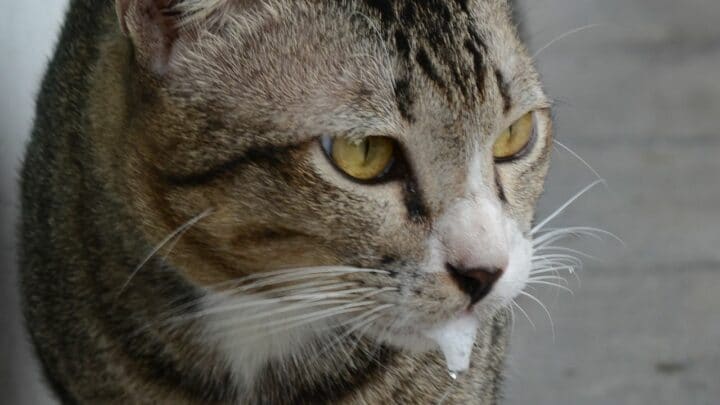It can be terrifying for a pet owner to notice that their cat has suddenly begun foaming at the mouth.
Automatically, the first thought that comes to mind is rabies, which can cause further concern and confusion if the cat has been vaccinated.
Although a licensed veterinarian will need to conduct a thorough medical evaluation of your cat to definitively determine the reason for the mouth-foaming, there are actually several possible causes of your cat foaming out the mouth.
Why is my Cat Foaming at the Mouth?
Your cat is foaming at the mouth because of rabies, nausea, anxiety, and dental conditions. If your cat has been poisoned or has ingested substances that have a bitter taste, cats may also begin foaming at the mouth. Other reasons are adverse reactions to certain flea medications and if they have a seizure.
1. Rabies Can Cause Mouth Foaming in the Late Stages of the Disease
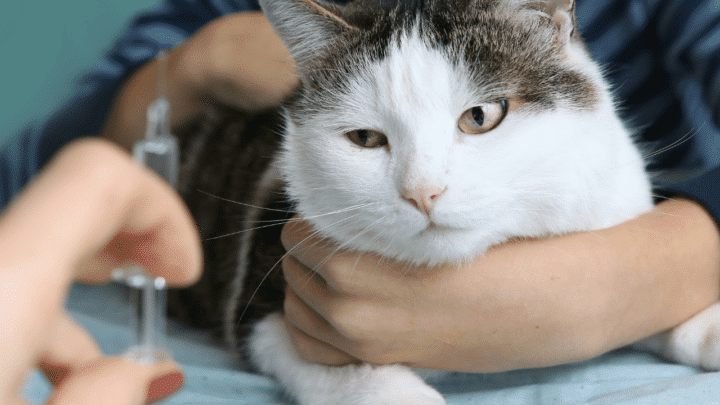
Rabies are a reason why your cat is foaming at the mouth
Surely, as a pet owner, you’ve heard about rabies, and the second that you notice your cat is foaming out the mouth, your initial fear is that your beloved pet has somehow become rabid.
While this is certainly a possibility, especially if your pet has been exposed to other animals, rabies is an unlikely scenario if your cat has been vaccinated.
Since mouth-foaming doesn’t occur until the late stages of rabies, your cat would’ve been rabid for some time before developing this symptom.
Rabies also causes behavioral changes, aggression, and drooling, so you should monitor your cat for other symptoms.
Unfortunately, there are no available rabies treatments aside from booster shots, so most likely your cat will need to be euthanized.
2. Nausea
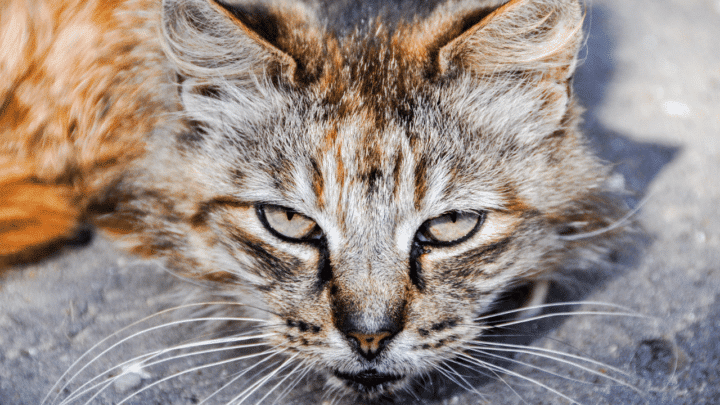
Nausea often leads to fatigue in cats
Here’s the good news: as long as your cat has been vaccinated for rabies, there’s a good chance that you won’t need to say goodbye to your cat just yet.
Simple nausea can also lead to foaming at the mouth. Huge relief, huh?
If your cat is feeling nauseous, they will experience fatigue, a decreased appetite, and possibly foam out the mouth.
There are many reasons that your cat may develop nausea, including pregnancy, motion sickness, and illnesses such as gastritis and diabetes.
3. Anxiety
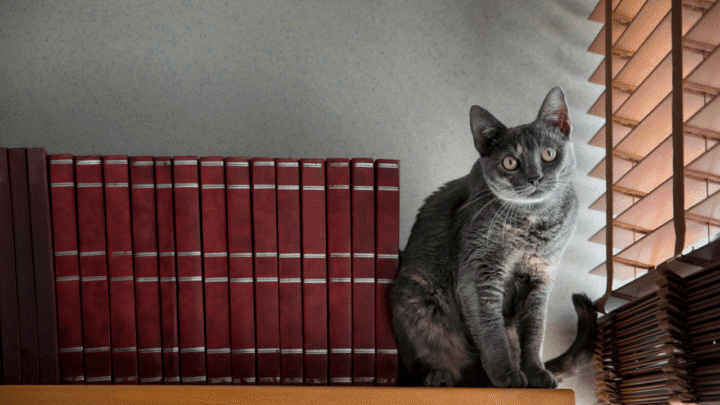
Cats experience anxiety
The reason behind your cat foaming out the mouth may not even be physical in nature. Yes, cats can indeed experience emotional distress.
This may be due to separation anxieties, difficulties socializing with other pets in the home, having a momentary fear response from an encounter with an unfamiliar animal, or simply moving to a new location.
Cats may begin to pace back and forth throughout the house, become hyper-vigilant, tremble, groom themselves excessively, and even foam out of the mouth when they are experiencing extreme levels of anxiety.
While you can reduce their anxiety levels by determining the cause, this can be challenging.
However, there are medications available that alleviate cat anxiety.
4. Dental Conditions Can Result in a Cat Foaming At The Mouth
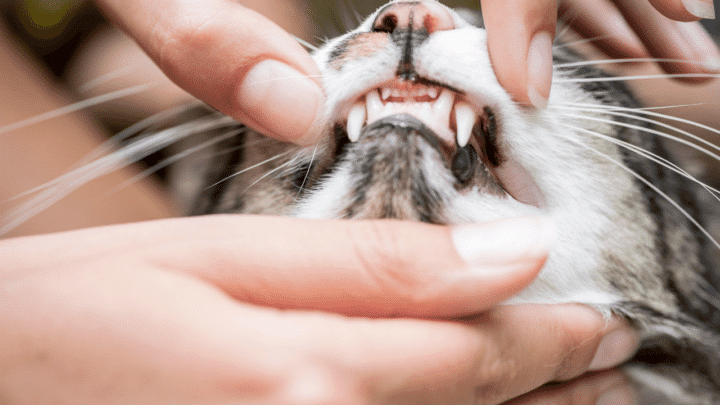
Dental conditions can lead to cats foaming at the mouth
In the same way that an abscessed tooth can develop and cause pain, dental problems can cause animals to foam out the mouth in response to the infection.
If your cat has gingivitis or happens to break a tooth, they can not only experience pain, foul-smelling breath, and a decrease in appetite, but they also may begin to foam out the mouth as the dental condition progresses.
Although this may sound odd, many veterinarians do advise pet owners to brush their cat’s teeth.
Sure, this may indeed be beneficial to your pet’s health, but if brushing your cat’s teeth sounds too extreme for your taste and you suspect the possibility of dental disease, you may want to go ahead and schedule a veterinary check-up.
5. Cats Is Been Poisoned
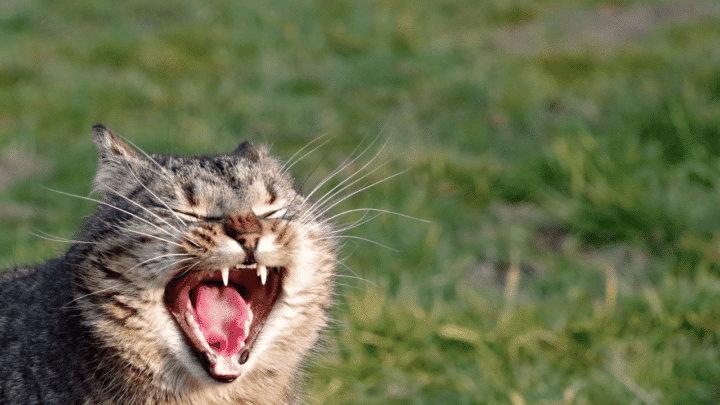
A poisoned cat is every cat owners worst nightmare
Aside from the possibility of rabies, this is the scariest explanation for your cat foaming at the mouth.
Naturally, if you suspect poisoning, you should seek emergency veterinary care.
Flea medications that have been applied directly to your cat’s coat or have been directly ingested by your cat accidentally could cause your cat to start to foam out the mouth.
Bitter-tasting substances such as foods and medications can also result in foaming as a response to the foul taste.
There are several ways that your cat may have inadvertently ingested poison, from eating a poisonous frog to getting into household products, so there’s insufficient reasoning for you to suspect your not-so-friendly neighbor.
Fortunately, prompt veterinary care can be effective at helping your cat make a full recovery from poisoning.
6. Cats May Foam When They Have a Seizure
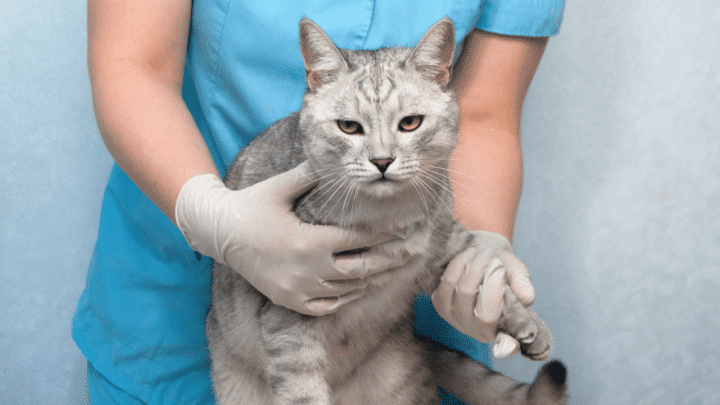
Cats can have a seizure
Unless the seizure occurred when you weren’t present, it’s fairly easy to tell when your cat is experiencing a seizure as the symptoms are similar to human seizures.
A cat will fall over onto the floor, temporarily lose consciousness, display violent trembling and shakes, and will likely start to foam out the mouth.
If your cat exhibits symptoms of a seizure disorder, you will need to make a veterinary appointment.
Fortunately, there are medications available to treat cat seizure disorders and reduce the frequency of seizures.
Frequently Asked Questions About Why My Cat Is Foaming At The Mouth
How Long Does It Take to Notice Rabies in a Cat?
It’s really hard to say. Most often, a cat will start to exhibit symptoms of rabies between three to eight weeks after they have been exposed, but in some cases, they may not show any symptoms for up to a year after exposure. Mouth foaming is a symptom of the final stages of rabies.
What Household Items Are Poisonous to Cats?
Many household cleaners, including bleach and laundry soap, are toxic for cats if they are ingested, which could result in poisoning and foaming out the mouth. It’s important to keep these common household products away from children and pets.
Why Is My Cat Foaming Out the Mouth After Being Administered Medication?
It is common for cats to start foaming out the mouth after receiving medication due to the taste or difficulty swallowing. It doesn’t necessarily signify an allergic reaction.
Conclusion
If your cat is foaming out the mouth, it’s not necessarily rabies, but you should seek prompt veterinary care.
Several factors can result in mouth-foaming, but in most cases, there are medications available and the prognosis is good.
Fortunately, there’s a good chance that your cat will start feeling better soon.

